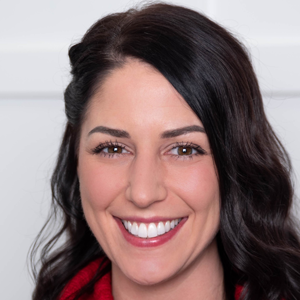This is the ninth, consecutive time since 2000 that UHC’s Cardiac Rehab program has received accreditation.
Bridgeport, WV –United Hospital Center (UHC) proudly received recertification of its Cardiac Rehabilitation program by the American Association of Cardiovascular and Pulmonary Rehabilitation (AACVPR). UHC was recognized for its commitment to improving the quality of life by enhancing standards of care. This is the ninth, consecutive time since 2000 that UHC’s Cardiac Rehab program has received accreditation and the UHC Pulmonary Rehab program has been certified since 2001.
“Patients who are referred to UHC can feel confident in receiving specialized, comprehensive care, which is only further enhanced by this distinctive certification,” said Angelina R. Davis EP, MS, manager, Cardiac and Pulmonary Rehab. “Receiving this accreditation is a testament to how UHC’s Cardiac Rehabilitation service helps patients with heart disease recover faster and return to full and productive lives.”
Cardiovascular and pulmonary rehabilitation programs are designed to help people with cardiovascular problems (e.g., heart attacks, coronary artery bypass graft surgery) and pulmonary problems (e.g., chronic obstructive pulmonary disease [COPD], respiratory symptoms,) recover faster and improve their quality of life. Both programs include exercise, education, counseling, and support for patients and their families.
UHC’s Cardiac and Pulmonary Rehabilitation programs participated in an application process that requires extensive documentation of the program’s practices. AACVPR Program Certification is the only peer-review accreditation process designed to review individual programs for adherence to standards and guidelines developed and published by AACVPR and other professional societies. Each program is reviewed by the AACVPR Program Certification Committee and Certification is awarded by the AACVPR Board of Directors.
In 2018, AACVPR moved to an outcomes-based process with performance measurements that represent more meaningful outcomes. Therefore, AACVPR-certified programs are leaders in the cardiovascular and pulmonary rehabilitation field because they offer the most advanced practices available and have proven track records of high-quality patient care. AACVPR Program Certification is valid for three years.

Angelina R. Davis EP, MS,
Manager, Cardiac and Pulmonary Rehab
United Hospital Center
About United Hospital Center
United Hospital Center is the result of a merger between St. Mary’s and Union Protestant hospitals in 1970. This bold move provides north central West Virginia with a regional community hospital that offers a vast array of services. The new UHC opened in 2010 and is located along I-79 in Bridgeport. The 692,000 square foot structure rises eight stories. It is designed around the environment with the patient, family, staff, and community in mind—which includes enhanced patient privacy, a high level of technology integration, and improved access to care. The acute care facility has 292 private inpatient rooms and a medical staff that consist of more than 140 primary care and specialty physicians. UHC employs more than 2,580 Associates and is a member West Virginia University Health System. For more information about United Hospital Center, please visit uhcwv.org.
About AACVPR
Founded in 1985, the American Association of Cardiovascular and Pulmonary Rehabilitation is a multidisciplinary organization dedicated to the mission of reducing morbidity, mortality and disability from cardiovascular and pulmonary disease through education, prevention, rehabilitation, research and disease management. Central to the core mission is improvement in quality of life for patients and their families.
Please note, the information provided throughout this site is not intended or implied to be a substitute for professional medical advice, diagnosis or treatment. All content, including text, graphics, images, and video, on or available through this website is for general information purposes only. If you are experiencing related symptoms, please visit your doctor or call 9-1-1 in an emergency.